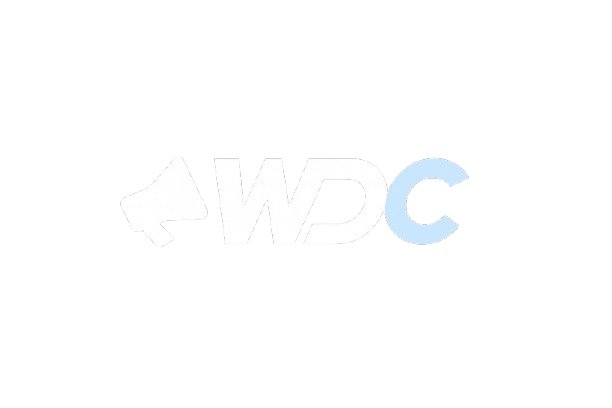As we move into 2025, Google’s algorithms continue to evolve, reshaping how websites are ranked and how digital marketers approach search engine optimization (SEO). With each update, the competition for higher rankings becomes more intense, making it essential for website owners and SEO professionals to stay ahead of the curve. To help you stay competitive and ensure your website thrives in the ever-changing SEO landscape, here are 10 essential technical SEO tips to master Google updates in 2025.
1. Improve Core Web Vitals
Google has already started using Core Web Vitals as a ranking factor, and in 2025, their importance will only increase. Core Web Vitals are user-centric performance metrics that measure your website’s loading performance, interactivity, and visual stability. Key metrics include Largest Contentful Paint (LCP), First Input Delay (FID), and Cumulative Layout Shift (CLS). Ensuring that your website performs well in these areas can boost user experience and improve your rankings.
Tip: Use tools like Google PageSpeed Insights, Lighthouse, and Chrome DevTools to analyze and optimize your Core Web Vitals.
2. Prioritize Mobile-First Design
Mobile-first indexing means Google predominantly uses the mobile version of your website for ranking. With mobile traffic continuing to dominate, it’s crucial to ensure your website is mobile-optimized. Google’s algorithms favor websites that are fully responsive, meaning they adjust seamlessly to various screen sizes.
Tip: Test your website on mobile devices regularly and ensure that all important content and features are accessible on smaller screens.
3. Focus on Site Speed Optimization
Page speed is a critical ranking factor, especially after Google’s Core Web Vitals update. Slow loading times lead to poor user experience and can negatively affect rankings. In 2025, Google’s focus on user experience will drive further importance to site speed.
Tip: Compress images, minimize CSS and JavaScript files, and leverage browser caching to speed up your website. Tools like GTmetrix and WebPageTest can help identify areas for improvement.
4. Optimize for Structured Data
Structured data, or schema markup, helps Google better understand the content on your website, improving how your pages appear in search results (e.g., rich snippets). Google is increasingly prioritizing structured data to enhance user experience and provide more relevant search results.
Tip: Use Schema.org markup to enhance your pages with structured data for events, reviews, products, FAQs, and more.
5. Focus on Crawl Efficiency
Googlebot needs to crawl your site to index and rank it. Efficient crawling ensures that your website is fully indexed, and Google’s crawlers can access and understand all essential pages. Overly complex website structures or poorly optimized internal linking can hinder this process.
Tip: Use tools like Google Search Console to monitor crawl errors and optimize your site’s robots.txt and XML sitemap for better crawl efficiency.
6. Enhance Internal Linking
Internal linking is a critical aspect of technical SEO that improves site navigation, distributes link equity across pages, and ensures that Googlebot can find all important content. An optimized internal linking strategy helps Google understand the hierarchy and relevance of your pages.
Tip: Regularly audit your site for orphaned pages (pages with no internal links) and create a logical, easy-to-follow link structure.
7. Utilize HTTPS for Security
Security is a top priority for Google. Websites using HTTPS (secure HTTP) are favored over HTTP sites. Google is expected to continue emphasizing secure websites in 2025, as user trust and privacy remain essential for the search engine.
Tip: If your site is not yet secured with HTTPS, migrate it immediately. You can obtain an SSL certificate through your hosting provider.
8. Optimize for Voice Search
With the growing use of virtual assistants like Google Assistant, optimizing for voice search is becoming increasingly important. Voice searches are often longer and more conversational, so you need to optimize your content to match the types of questions users ask.
Tip: Create conversational, FAQ-style content and optimize your site for featured snippets to capture more voice search traffic.
9. Address Duplicate Content Issues
Duplicate content can confuse search engines, causing them to struggle with deciding which page to rank. This can negatively impact your site’s rankings. Ensuring that your content is unique and properly canonicalized is essential for avoiding this issue.
Tip: Use canonical tags to indicate the preferred version of a page and avoid duplicate content issues. Regularly audit your site to identify and resolve duplicate content.
10. Stay Updated with Algorithm Changes
Google’s algorithm updates are frequent and can affect rankings. In 2025, staying on top of these updates will be essential for maintaining your site’s search visibility. Google will likely continue refining its ranking factors, with a particular emphasis on quality content, user experience, and technical performance.
Tip: Keep an eye on industry news and updates from Google, especially the core algorithm changes. Participate in SEO forums and communities to stay informed.
Conclusion
In 2025, mastering technical SEO will be crucial for staying competitive in the ever-changing world of Google rankings. By focusing on optimizing Core Web Vitals, improving mobile-friendliness, enhancing site speed, using structured data, and addressing other key technical aspects, you’ll ensure that your website is well-equipped to handle Google’s updates. With a solid technical foundation, you’ll not only improve your search rankings but also deliver an exceptional user experience that keeps visitors engaged and coming back for more.

